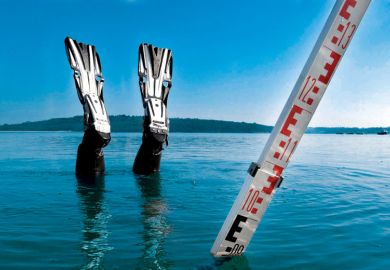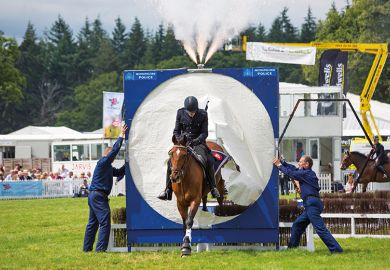European efforts to reform research assessment have hit the thorny issue of targets and timelines, with at least one major player threatening to walk away if progress is tied to numbers.
About 300 organisations told the European Commission they would join a coalition to reform research assessment, with a separate group of around 20 invited to actively draft a reform agreement.
There is broad consensus that the judgement of research contributions is still too dependent on counting journal papers. More nuanced alternatives exist, but assessors and institutions are often cautious to adopt changes that will materially affect thousands of careers.
“It’s a thing we think the science and the research funders should be free to decide: what tools or instruments would fit them best to do their job,” said Tobias Grimm, who represents the German Research Foundation (DFG) in the smaller group of drafting organisations.
“The goal of the initiative is to get away from quantitative targets for the science community; we want to get away from counting impact factors and so on. If you replace it with a new set of targets for funders and for science, that’s not the road we would follow.”
The commission suggested developing broader assessment criteria, with recognising peer review work and allocating resources for reform among the actions to which signatory institutions could commit.
Dr Grimm said that the DFG would walk away from the agreement if those commitments came with concrete targets. “We don’t need to align anything with anything. We need common principles and we need to confirm ourselves there are better and not so good ways of doing research assessment, but we won’t prescribe it to someone,” he said.
That opposition is at odds with some of those responsible for drafting the agreement, which is designed to go beyond previous declarations on research assessment, such as those named for San Francisco, Leiden and Hong Kong.
“We do want to link it to some kind of target or timeline,” said Karen Stroobants, a consultant who is helping draft the agreement. “We are realistic that that probably will mean that we will not from the very start get everyone on board. That’s the balance, of course: if you want to have a certain level of ambition it will be difficult to have absolutely everyone on board from day one.”
Science Europe’s secretary general, Lidia Borrell-Damian, said that while it was “ideal” to keep all organisations on board, the important thing was to make sure universities, research organisations and funders from across Europe were represented. “Probably there will be a timeline suggested, but it will just be indicative,” she said.
The agreement is also due to sketch out a monitoring system, but this must account for roadblocks that institutions themselves cannot remove, such as where recruitment rules are bound by national regulations.
Bert Overlaet, who represents the League of European Research Universities in the drafting group, said that the agreement would be “dead before it has started” if European Union governments do not back it. “The institutions in general have a fear that they will engage in a process with the commission and then the member states won’t follow,” he said.
Dr Borrell-Damian said an initial plan to firm up the agreement before July had been shelved and that it would probably not be ready for signatures until autumn 2022.
POSTSCRIPT:
Print headline: Targets split research assessment reformers
Register to continue
Why register?
- Registration is free and only takes a moment
- Once registered, you can read 3 articles a month
- Sign up for our newsletter
Subscribe
Or subscribe for unlimited access to:
- Unlimited access to news, views, insights & reviews
- Digital editions
- Digital access to THE’s university and college rankings analysis
Already registered or a current subscriber?








